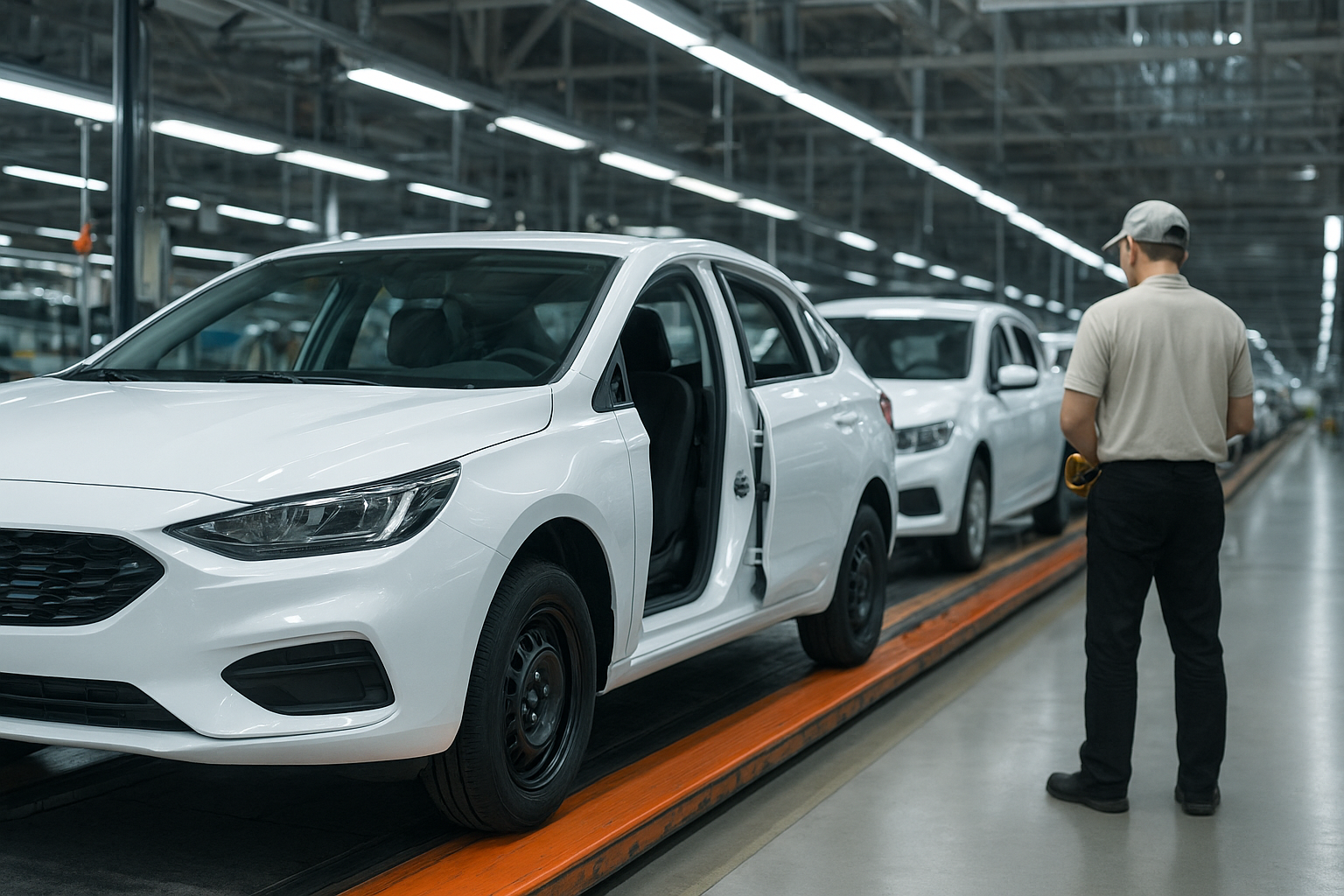Global Vehicle Registrations Show Incremental Growth
In October 2025, several major automotive markets reported modest gains, with key sectors witnessing structural shifts toward electrified powertrains. In the United Kingdom, registrations reached 144,948 units — up 0.5 % year-on-year — according to data from Society of Motor Manufacturers & Traders (SMMT). Notably, electrified vehicles (battery EVs, plug-in hybrids, and hybrids) now account for 50.8 % of new registrations (BEVs: 25.4 %, PHEVs: 12.1 %, HEVs: 13.3 %).
In India, domestic passenger vehicle wholesales reached new highs during the festive season in October, driven by tax incentives and seasonal demand. Maruti Suzuki posted 176,318 units (+10.5 %), while Tata Motors reported 61,295 units (+26.6 %), with EV sales up 73.4 % year-on-year. In Australia, the market recorded 99,588 vehicle sales (+1.2 %), with hybrid and plug-in hybrid models growing 25 % and 95 % respectively compared to October 2024, according to the Federal Chamber of Automotive Industries. These data indicate that while growth is modest in mature markets, the transition to electrification is accelerating and becoming a dominant factor in new-vehicle purchases.
Semiconductor Supply Chains Create New Production Risks
One of the most significant threats emerging in October involves the automotive semiconductor supply chain. The European Automobile Manufacturers’ Association (ACEA) issued a press release on 16 October warning that supply disruption at chip-maker Nexperia — following its takeover and export curbs — could trigger substantial production stoppages across the European vehicle industry. The issue arises from Nexperia’s inability to guarantee continued supply, which poses risks not only in Europe but also for global production chains.
Automakers are already facing increased costs and inventory uncertainty, prompting them to call for rapid mitigation. The situation highlights both the fragility of modern automotive supply chains and the importance of resilience in manufacturing strategy.
Trade and Tariff Pressures Hit Premium Segment
In the premium segment, Aston Martin issued a profit warning in early October, citing U.S. tariffs under the Donald Trump administration as a contributing factor. The British manufacturer expects a larger loss than previously forecast, blaming supply-chain pressures, weakening demand and a recent cyber-attack at one of its UK suppliers. The company is requesting more proactive government support, warning that tariff complexity and export quotas are undermining its ability to forecast and invest.
This case underscores how geopolitical policy, cyber-risk and niche-market economics are converging to challenge specialty vehicle‐makers.
Model Rankings Reflect Changing Buyer Preferences
According to data from Carwow, the top ten best-selling new cars in the UK in October 2025 included:
- Ford Puma
- Kia Sportage
- MINI Cooper
- Volkswagen Golf
- Nissan Juke
- Jaecoo 7 — the highest-ranking Chinese-brand model
- Nissan Qashqai
- Volkswagen Tiguan
- Vauxhall Corsa
- Audi A3
The rise of the Jaecoo 7 reflects increasing competitiveness of Chinese-brands in Europe. The list also reveals that small SUVs and compact crossovers continue to dominate procurement, aligning with broader global trends.
Outlook: What’s Next?
The automotive industry in October 2025 is navigating a landscape defined by transition. Electrification is no longer a niche trend — in some markets it’s already the majority of new sales. At the same time, supply-chain fragile points, particularly semiconductors and tariffs, are creating fresh challenges. Automakers must adapt by diversifying sourcing, investing in local capacity and aligning strategies with evolving regulations and consumer behaviors.
Looking ahead to 2026, analysts expect overall global vehicle production to exceed pre-pandemic levels. But success will hinge on managing both innovation and resilience: rolling out advanced EVs and hybrids while safeguarding production against disruptions.
For stakeholders — manufacturers, regulators, consumers — the message is clear: speed matters, but so does stability. The road ahead is electric, but the path is complex.


